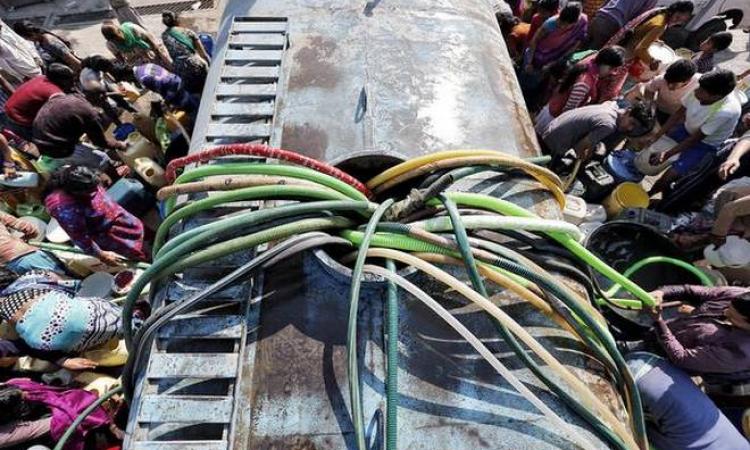
Delhi's groundwater most ‘over exploited’ after Punjab and Rajasthan
With groundwater in 56 percent of tehsils in Delhi found to be over exploited, the state is now the third most ‘over exploited’ behind Punjab and Rajasthan. As per the Central Groundwater Board data, 76 percent of the assessment units were found to be overexploited in Punjab while it was almost 66 percent in Rajasthan. Extraction of groundwater is seen to be much more than the amount recharged, which is exacerbated by the concretisation of recharge zones across Delhi and its satellite towns.
Thenpennaiyar and Arkavathi polluted before they flow into Tamil Nadu: CPCB
In a report submitted to the Supreme Court, the Central Pollution Control Board (CPCB) has noted that the Thenpennaiyar and the Arkavathi, both tributaries of the Cauvery, are polluted before they flow into Tamil Nadu. Water samples were tested by the CPCB as well as the Karnataka and Tamil Nadu Pollution Control Boards following a 2015 case filed by Tamil Nadu seeking to restrain Karnataka from letting untreated effluents and sewage into the Cauvery.
Data reveals that only 24 percent of the solid waste generated is being processed in the country
Statistics from the Ministry of Housing and Urban Affairs reveal that only 23.73 percent of all the waste generated in the country is currently being processed. In terms of quantity, Maharashtra produced the maximum volume of waste out of which it processed 35 percent of it. The Swachh Bharat Mission aims to attain 100 percent scientific management of solid waste across the country by October 2, 2019.
Low-cost filter helps remove arsenic and iron from water
People of Assam, one of India’s worst arsenic-hit states in the country can now benefit from a simple, low-cost technology developed by researchers at Tezpur University. Arsiron Nilogon is designed to remove high concentrations of arsenic and iron from water at a cost of 50 paise per 100 litres. The technology is capable of reducing arsenic to the tune of 500 ppb to below 2 ppb. Initial trials were kicked-off in 2010 in Assam’s Jorhat district.
Excessive groundwater extraction leads to seawater intrusion along Chennai's East Coast Road
The increase in the number of private borewells to extract water for domestic use has put a severe strain on one of the healthiest aquifers to the south of Chennai. Mindless digging and extraction of water from the interface zone, below the freshwater layer in the southern coastal aquifer has led to seawater intruding into many localities along the coast. This is further exacerbated by poor groundwater recharge. With most of the city being paved, it leaves no open space for rainwater to percolate into the ground.
This is a roundup of important news from March 6-12. Also, read the policy matters this week.
/articles/cpcb-delhis-groundwater-most-exploited